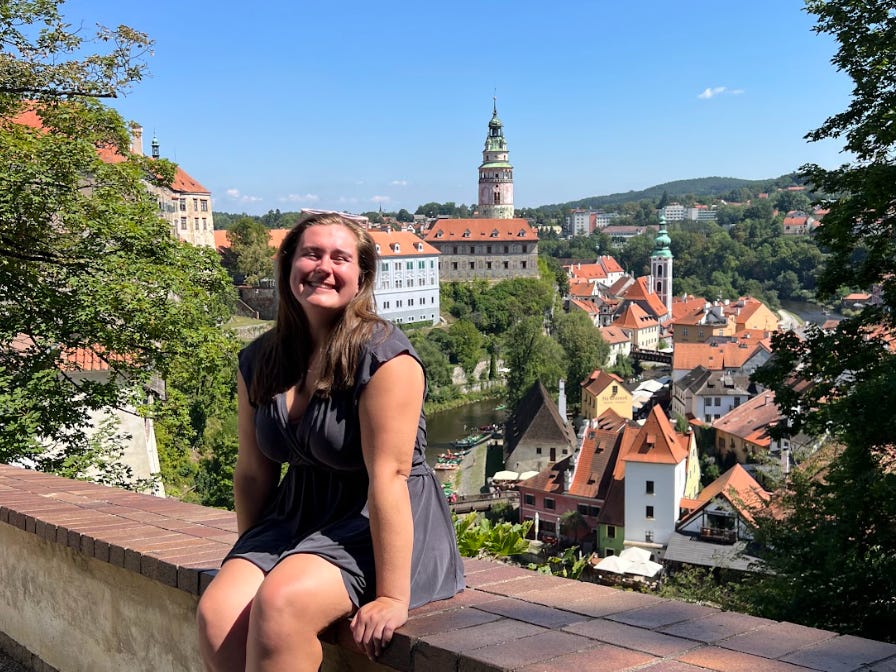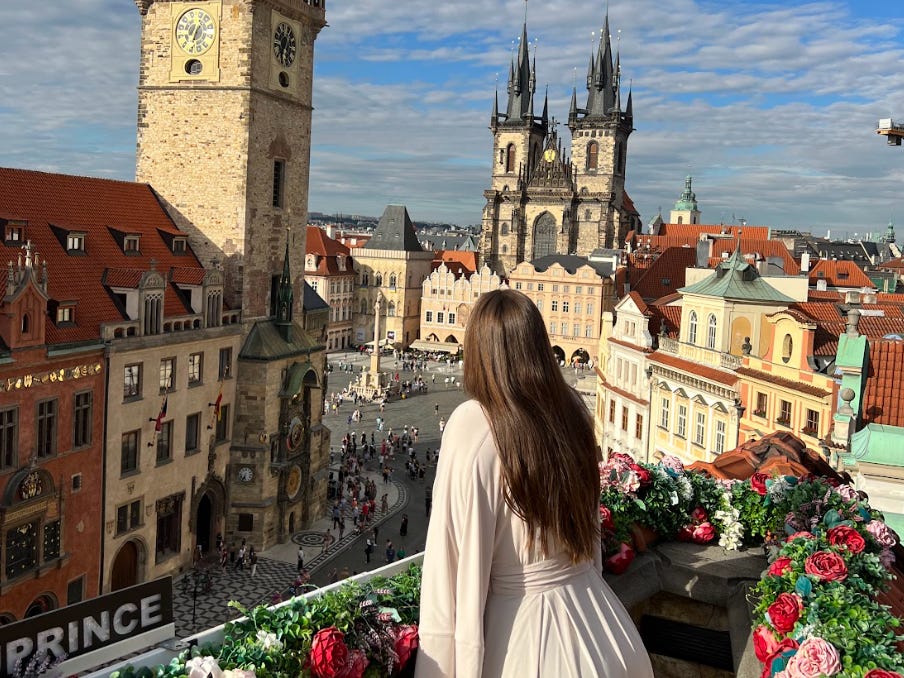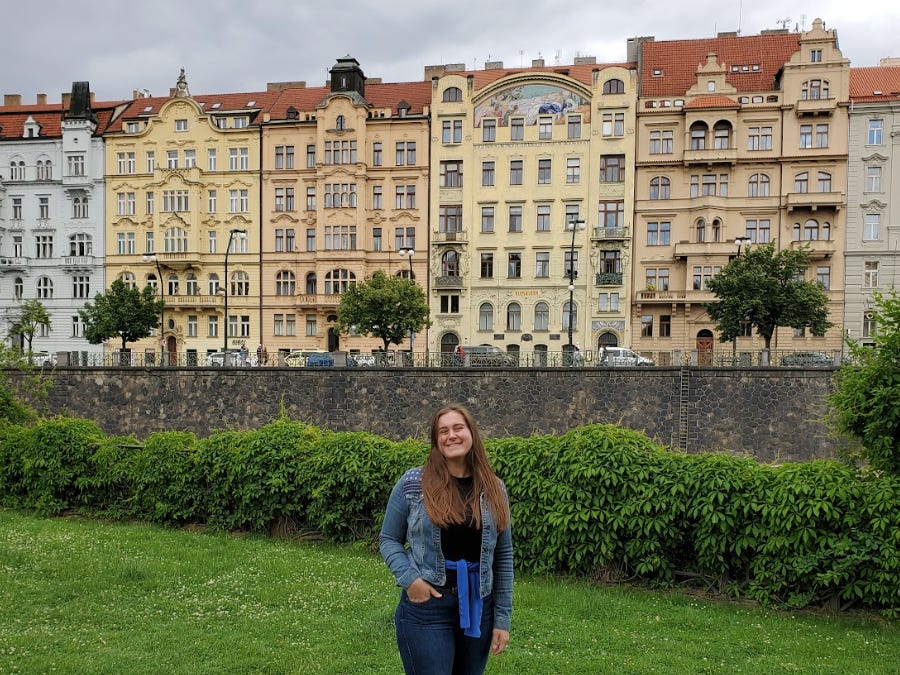
Samantha Tatro
After getting my first full-time journalism job at 19 years old, I fell into a pattern: work, get promoted, work harder, repeat … up until retirement.
Although I’d grown up living all over, I spent most of my working adulthood in the US, where this attitude felt like the norm.
Then, after eight years of living in San Diego, I received a job offer that brought me and my husband to the Czech countryside.
I expected to experience some culture shock. What I didn’t expect was a complete shift in my perspective around work and ambition.
When I lived in America, the workday never felt ‘over’
For most of my life, work never stopped when the clock struck 5 p.m. I felt that once I left the office, I had a responsibility to keep track of emails and chats for the rest of the day.
Staying up-to-date with work at all hours, and at the expense of other parts of my life, felt like something I had to do in order to get promoted.
I experienced this at several different jobs in America, and friends often echoed the same sentiment. If I didn’t jump in to help out with extra hours, I’d often receive negative feedback.
So, I was shocked when I moved to the Czech Republic and noticed everyone — from my coworkers to new friends in other industries — firmly signing off at the end of the day.
After years of working extra hours for no additional compensation, I struggled to adapt to a new normal: putting away my work for the day. My coworkers would clock out, grab drinks with friends, and forget about their jobs.
But still, I’d leave work at the end of the day, reaching for my phone, only to find no new emails or messages — or, if I did, a clear caveat saying, “Don’t read this until you get in.”
Here, taking time off doesn’t feel like a rare luxury

Samantha Tatro
I came to Europe knowing that many countries offered ample time off. In fact, the mandatory minimum of 20 vacation days in the Czech Republic was a huge draw.
What I didn’t expect? How easy it would be to take that time off.
After years of working in the US, I was accustomed to requesting time off, then having it denied. Even scheduling a doctor’s appointment without affecting my coworkers’ workload was a difficult endeavor.
The first time I requested vacation time in the Czech Republic, my manager asked me, “Why are you asking me if you can take the time off? If you have the days, just pop it into the calendar.”
Since moving to Europe, I’ve never had paid time off disputed or questioned. Having at least four paid weeks off a year is amazing, and makes me question how I ever lived with just 10 days off in the US.
Now, I work to live, not live to work

Samantha Tatro
When I first moved to the Czech Republic, I felt the need to put in extra hours and jump online during my off-hours just to “check in.” But after six years of living here, my mentality’s shifted.
Taking care of myself in order to prevent burnout, something I’d never thought about much before, started to become a priority.
Dedicated family time is a huge part of Czech culture, and now it’s become part of my routine, too.
My husband and I will take our dogs on long walks in the park every day after work and cook dinner together — something we never had time for before.
One of the reasons we love the Czech Republic is the emphasis on slow living; people care more about enjoying their lives.
On Saturdays and Sundays, when all the shops in my village close early, I don’t complain. Instead, I relish the opportunity to take a walk, read a book, or garden.
Living in the Czech Republic hasn’t made me any less ambitious, but it has taught me to prioritize what’s truly important in life.
I still work hard, but now, time with my family and my mental health mean more to me. My newfound sense of work-life balance means more post-work drinks and laughter with friends … and far fewer emails.
The post I’m an American who moved to the Czech Republic 5 years ago. It’s completely changed my definition of work-life balance. appeared first on Business Insider.




